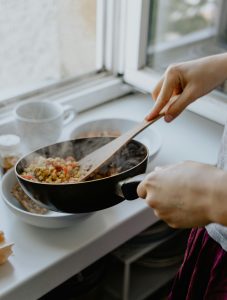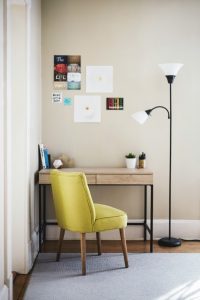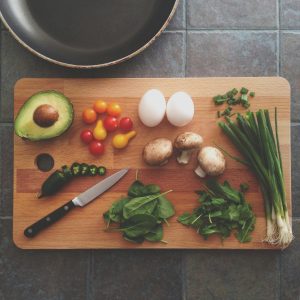Developing new skills and confidence is all part of becoming independent. Looking after yourself at home, managing money and getting out and about, are all part of preparing for adulthood.

Choosing were to live is one of the biggest decisions we make as we get older. Some of us will move away from home to study or for a job. For others it will be part of learning to live more independently with the support of people who are not part of our family.
So what are the main options for living away from home? 
- Renting a room in a flat or a house with other people
- Renting your own flat or house
- Buying a flat or a house
- Supported living (This is where you live with other people who are not your family but are there to help you)
Most young people continue to live at home after they leave school or try and rent a room in a shared house or flat.
- If you are moving away to study at college or university check out our information in the Education, training and work page.
- Take some time to check out information and advice on your options for living at university.
- If you are moving away from home for work some employers may help you find accommodation. It’s worth asking at your job interview or when you get offered a job.
- If you want to move away from home and need support to live independently, supported living is another option. Supported living is a way of living away from your family but having people around to help you. You can find information about this type of arrangement below.
- Shared Lives South West
- Beyond Limits
- The Transitions to Adult Social Care (TASC) team at Devon County Council may be able to provide information on living options as you prepare to become more independent. You can contact the team yourself or ask a trusted adult to this for you. To do this you need to fill in a referral form. You can find how to do this here.
Learning how to manage your money is all  part of growing up.
part of growing up.
As you become more independent you may start to earn money by having a job or you may get some state benefits that will give you money.
Once you have money you’ll have to make decisions about how to use it.
Here are a few things involving money most people have to think about:
Travel costs: If you are travelling to college or work you may have to pay for transport, such as a bus or train.
Rent & Bills: If you move away from home you may have to pay rent for a room or flat. You may also have to pay for heating, electricity and water.
Food: You may have to buy food to cook yourself or buy food from a college or work cafe or shop.
Leisure: Some of the things you enjoy doing may cost money. Joining a sports club, computer games, going on holiday.
Knowing how much things cost and how much you have to spend on different things can be hard to work out at first. That’s why it’s good to find out as much as you can before you have to!
There is lots of information and tips for young people on this website Supporting yourself financially – a guide for young adults aged 16 to 24 | MoneyHelper
You can find information about benefits and help with money if you are disabled or have a health condition here.
Being able to get out and about about is really important.
 You might need to travel further to get to college or work. You may also want to travel to see friends or visit places.
You might need to travel further to get to college or work. You may also want to travel to see friends or visit places.
There are things you can do to help you become more confident if you need to travel to new places. Here are a few things you can try:
- Check out where the bus stop or train station is and how to get there from home. You can ask people you know or use something like Google Maps.
- If you can, find out how much it costs and how you get a ticket. The bus and train companies may have this information on their website. If you’re travelling in Devon you can find information on the Travel Devon website.
- Ask a trusted adult to do the journey with you until you feel able to try on your own.
- If you’re travelling to a new school or college see if you can travel with other students.
- Some colleges may include travel training as part of your course. Ask about this when you apply to college.
- Some young people can get travel training from Devon County Council. To find out more about travel training check the Independent Travel Training webpage.
A good way to prepare for independence is by learning how to shop and cook for yourself.

If you move away from home to study or work these skills will be really vital! We all like a take away now and then but it can be very expensive if you have to rely on them for all your meals.
The earlier you start learning about shopping on a budget the easier it’ll be when you leave home. A budget is knowing how much you have to spend on the things you need.
Check out the information about money in the section above.
When it comes to cooking, practice makes perfect! If you can help at home or go to a cooking club at school or in your local area you can learn a lot.
It’s good to find out what foods help you stay healthy and how to use them to make interesting and tasty meals. You can find information about a healthy diet on the NHS website .
There are lots of videos on You Tube or Instagram you can watch. You can learn new recipes and find out how to cook different ingredients. Here’s the chef Jamie Oliver on You Tube.
Part of becoming more independent is taking responsibility for our health. We all have physical and mental health and how we live can affect how we feel and what we can do.
Here are some things you can do to help you take care of your health:
- Get enough sleep! You can generally tell if you don’t get enough sleep. You may feel tired, grumpy and find it hard to concentrate. We have information how you can set yourself up for better sleep on our Staying Healthy page.
- Eat well! If you’re shopping and cooking for yourself find out how to prepare meals that are balanced. You can find information on what you can do to eat well from the British Nutrition Foundation
- You may be able to get a yearly health check up with your doctor. A regular health check can improve your health by spotting problems earlier. You can ask your parent/carer or your doctor. Here’s a template letter you can use to ask your GP for an annual health check.
- This film explains a bit about how they work and how a health check can help you.
Page created October 2024
Page due for review October 2026
